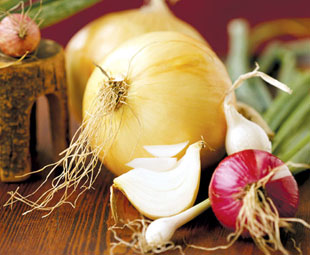Onions are a good source of quercetin, which according to previous research is metabolized very quickly by the intestine and liver and is not actually found in human blood.
Eating a meal rich in compounds called flavonoids reduces some early signs of, new research shows.
Researchers at the British Institute of Food Research focused on one of the compounds, quercetin, which is found in onions, tea, apples and red wine, and found that in the case of one inflammatory process, a lower dose of the compounds, achievable by eating 100 grams to 200s gram of onions, actually had a bigger impact, the institute said in a statement Monday.
Onions are a good source of quercetin, which according to previous research is metabolized very quickly by the intestine and liver and is not actually found in human blood.
The researchers concentrated on the compounds that enter the bloodstream after quercetin is ingested, absorbed and metabolised.
The compounds were used, in concentrations similar to those that would be produced following digestion, to treat cells taken from the lining of the blood vessels.
The researchers tested compounds that are actually found in the blood, rather than the flavonoid in food before it is eaten, as only these compounds will actually come into contact with human tissues and have an effect on arterial health.
The effect is more subtle than laboratory experiments using the parent compound, the researchers said, adding that the metabolites still have an effect on the cells lining the blood vessels.
Inflammation is an important process in the furring up of arteries that can lead to heart disease and stroke.
The new research provides clues as to why a diet rich in fruit and vegetables appears to reduce the risk of these conditions.
(Xinhua News Agency November 6, 2007)


